Stop Complaining about LGBT Characters on TV

Gay people are on TV and many LGBT people are fuming!
Despite years of neglect, decades of caricatures, and lack of attention on LGBT culture, ABC launched the dynamic miniseries, When We Rise, which follows four major characters from the rise of gay liberation to the present, and LOGO just released a trailer of its new reality show, Fire Island, that follows six gay men who share a beach house on the south shore of Long Island, New York.
Criticism of these shows has ranged from indictments of When We Rise as a limited history to claims that Fire Island celebrates the superficiality of gay culture: shirtless bronzed bodies, carefree days on the beach, and anonymous hookups. One recent comment on social media warned gay youth, “Don’t worry, we are not all like this.”
While many young LGBT youth may tune into this program, we should not forget that “Fire Island” is a reality show not a suicide hotline. Leaving aside the fact that some parts of LGBT community might enjoy watching shirtless guys flaunt their bodies, why does every show need to be taken so literally? Have we forgotten that we invented “camp”?
Television is not meant to be a pure representation of reality; it is purposely designed to fictionalize and to entertain. These programs are not documentaries or history books, but rather programs that take advantage of their literary license and play with form, style, and character.
The critics of Fire Island fail to recognize, for example, that this show, like many other reality shows, follows particular plotlines: housemates quarreling, housemates having sex, housemates valuing GTL—gym, tan, laundry—a ritual that Michael “The Situation” Sorrentino coined on the reality show “The Jersey Shore”.
The expectation that LGBT people need to rise above these representations and somehow be only shown in a political march is actually the stereotype, and one that When We Rise addresses but with much more nuance and style.

Telling the story of the movement, we meet Cleve Jones, who was Harvey Milk’s protégé and the creator of the AIDS Quilt. Jones’s life was quite remarkable as an activist who earned his stripes in street protests and evolved into a political strategist who clashed with younger generations of activists. The miniseries reveals a fascinating glimpse of Jones’ life outside of political marches. We witness him coming out, finding refuge in a queer tree house, refusing to accept his father’s plans to convert him; we see him trying to peddle up a San Francisco hill as a courier, we his friends dying of HIV/AIDS, we see him sitting alone in a barely lit room counting out his own meds, and we see him fostering an abandoned, crying infant.
Yet critics dismiss the film as too narrow. One historian wrote, “When one person becomes the lens through which the entire story of LGBT activism is told, we are left with disturbing misrepresentations of queer politics, culture, and life.”
 But “When We Rise” announces itself as a biopic based on a memoir, it does not aim to replace or represent all of LGBT history. Biopics are a particular genre, and are meant to lionize a particular figure from a historical period. Consider Twelve Years A Slave or The Danish Girl that take relatively unknown historical figures and introduce to them to a larger public, or consider how some biopics like Lincoln or Frida tell the story of famous people from the past by focusing on particular aspects of their lives. Criticizing When We Rise for focusing on “one person’s life,” which by the way it actually does not, fails to recognize the genre of this miniseries and assigns unnecessary criticism to a show that defines itself as based on a memoir.
But “When We Rise” announces itself as a biopic based on a memoir, it does not aim to replace or represent all of LGBT history. Biopics are a particular genre, and are meant to lionize a particular figure from a historical period. Consider Twelve Years A Slave or The Danish Girl that take relatively unknown historical figures and introduce to them to a larger public, or consider how some biopics like Lincoln or Frida tell the story of famous people from the past by focusing on particular aspects of their lives. Criticizing When We Rise for focusing on “one person’s life,” which by the way it actually does not, fails to recognize the genre of this miniseries and assigns unnecessary criticism to a show that defines itself as based on a memoir.
Biopics might actually be the best route to get LGBT history on television and in films. When producers and writers pitch shows about LGBT history, they depend on characters to lead the audience through a period. These characters become useful vehicles to connect disparate events and offer a semblance of a narrative arc. History books conversely can do what this critic suggests: they can offer more sustained analyses that capture nuance and offer a panoramic view of the past.

Shameless.
Instead of raising nitpicking questions of historical accuracy, why not consider the history of LGBT people on network television? How does this miniseries represent a change over time? What does it mean in the current political moment, when LGBT rights are under attack, that a major network tells the story of queer activists? What does it also mean that the series was willing to disclose all that infighting and division within the movement and not tell the story of a queer activist as some kind of parable about the past?
What critics of When We Rise and Fire Island don’t realize is the larger point that there is a power and politics in visibility During the 1970s, Craig Rodwell, who was the owner of the first ever gay bookstore in the United States, found hope even in the most damaging representations of LGBT people in LIFE magazine and on the nightly news, because he realized that the silence and erasure of LGBT community was worse. To that point, what is at stake in making hair-splitting, often unsubstantiated critiques in a time when LGBT people still remain marginalized in TV and film?
What critics of these television programs fail to recognize is just how painfully difficult it is to get LGBT people on the screen in the first place. While the academic or even personal reactions to these shows might condemn these representations as narrow or stereotypical, there is a power in visibility. We need networks to continue to invest in LGBT-centered programs and we need to realize how many of these endeavors support LGBT writers, producers, and others in the industry.

Despite the fanfare surrounding Ellen in the 1990s, the more recent representation of queer youth on Glee, and the splattering of other queer people in television and in movies over the last few decades, we are still in the pioneering stage of LGBT people on TV. We, as community, need to recognize that we are still in the beginning stage of LGBT people on TV and be a bit more sympathetic to the broader efforts made by so many LGBT producers, writers, and directors to get television shows that make LGBT people the primary subjects. We may have advanced politically but the viewing public lags behind, especially in a violent era when LGBT people are still targeted in nightclubs and massacred.
Before we lash our criticism to these shows for missing a particular point or for possibly perpetrating a stereotype, think of this: in the late nineteenth century, decades after black emancipation, many black novelists scrambled for a writer who would write a novel that would best represent “the race” and prove the artistic talents of black people. The writers strategized behind the scenes before they decided on who would be the first.
Frances Ellen Watkins Harper took up the challenge and wrote, what was considered in the last decade of the nineteenth-century, the first black novel, Iola Leory in 1892. Many black people would later criticize it; in fact, generations later, scholars would uncover that she was not the first novelist, that there were others who published novels before her. But the point is that the black community, thirty years after the ending of slavery, were still very careful about what they wrote, who wrote it, and how they publicly responded to it.
Roughly the same amount of time has passed after the rise of gay liberation, and I worry that we are not seeing the bigger picture and are just firing off reactive criticisms. What is at stake at making such claims?
I am not suggesting that we silence our criticism and let the few anointed writers speak for the rest of us, but rather understand the political implication of our criticism. If a film or book or a TV show egregiously misrepresents the past or capitalizes on a stereotype, we need to speak out against that but that does not mean that every minor detail that does not measure up to our own views is grounds for indictment. We need to situate these critiques within the broader context of the overwhelming silence of LGBT people on TV and the erasure of LGBT history.
The publishing, television and film industries are already reluctant to invest in queer themed programs, books, and movies, we don’t need to give them another reason to reject our stories. Understand that we are in a fragile state. We can criticize behind close doors and poke fun of some these representations with our friends in our living rooms, but remember there is an industry listening to you, that’s looking for a reason to stop putting LGBT people on television.
The history of LGBT community on TV only proves that most networks would prefer to keep LGBT people in the closet.
Jim Downs is the author of Stand By Me: The Forgotten History of Gay Liberation (Basic Books, 2016) and is an associate professor of history at Connecticut College.
The opinions expressed are those of the author.
The post Stop Complaining about LGBT Characters on TV appeared first on Towleroad.

Stop Complaining about LGBT Characters on TV


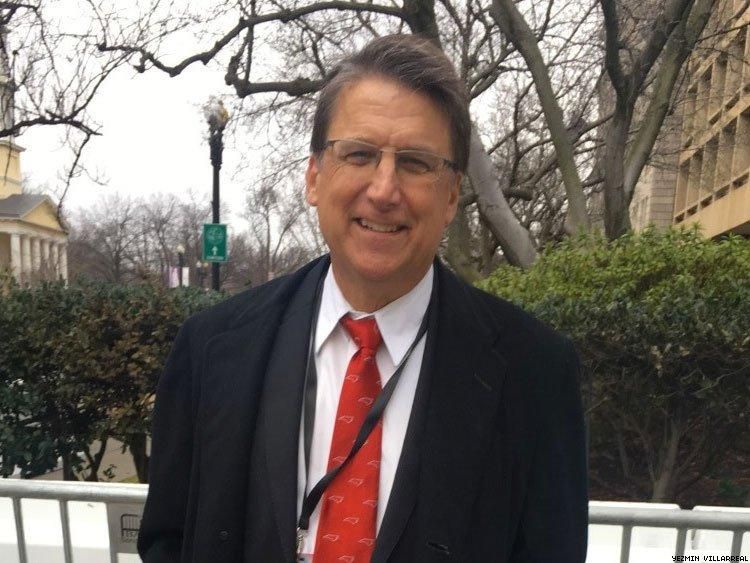




















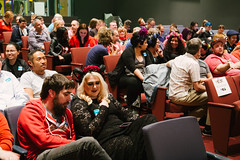
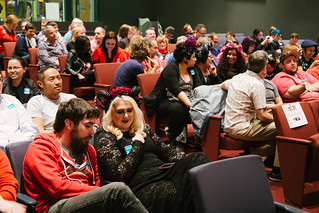
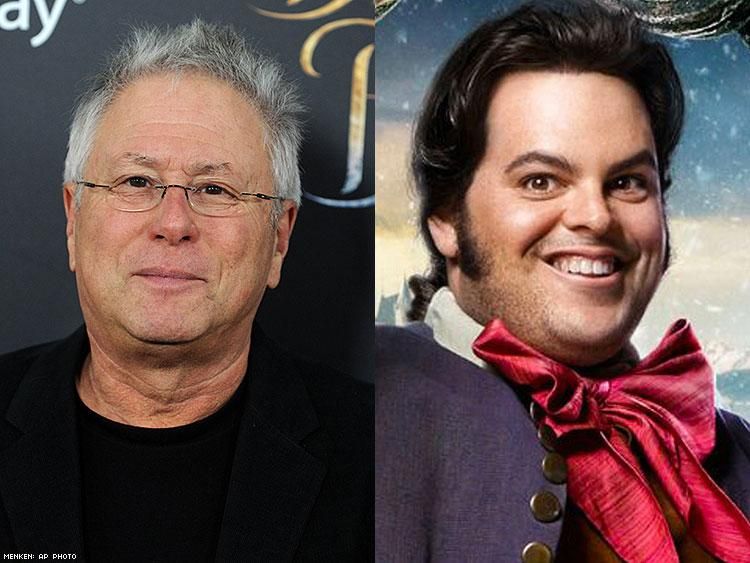
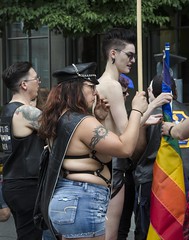
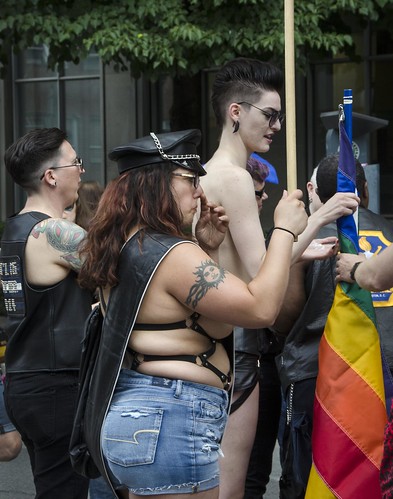



 But “When We Rise” announces itself as a biopic based on a memoir, it does not aim to replace or represent all of LGBT history. Biopics are a particular genre, and are meant to lionize a particular figure from a historical period. Consider Twelve Years A Slave or The Danish Girl that take relatively unknown historical figures and introduce to them to a larger public, or consider how some biopics like Lincoln or Frida tell the story of famous people from the past by focusing on particular aspects of their lives. Criticizing When We Rise for focusing on “one person’s life,” which by the way it actually does not, fails to recognize the genre of this miniseries and assigns unnecessary criticism to a show that defines itself as based on a memoir.
But “When We Rise” announces itself as a biopic based on a memoir, it does not aim to replace or represent all of LGBT history. Biopics are a particular genre, and are meant to lionize a particular figure from a historical period. Consider Twelve Years A Slave or The Danish Girl that take relatively unknown historical figures and introduce to them to a larger public, or consider how some biopics like Lincoln or Frida tell the story of famous people from the past by focusing on particular aspects of their lives. Criticizing When We Rise for focusing on “one person’s life,” which by the way it actually does not, fails to recognize the genre of this miniseries and assigns unnecessary criticism to a show that defines itself as based on a memoir.


